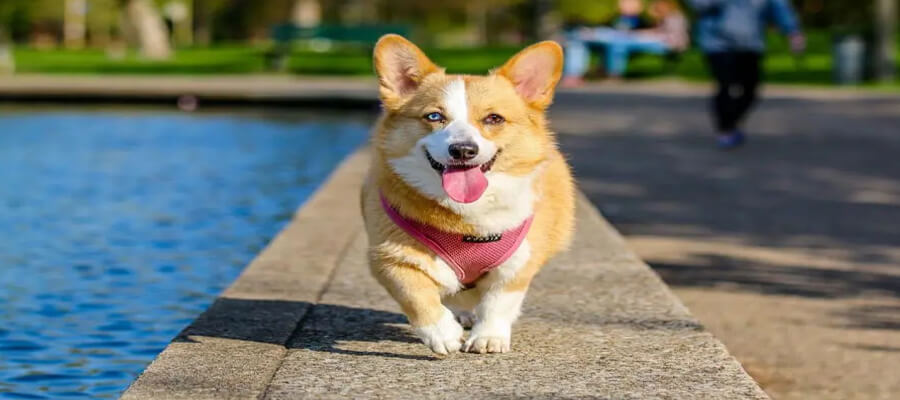
What to Expect During Your Puppy’s First Vet Visit
"What to Expect During Your Puppy’s First Vet Visit: A Comprehensive Guide"
Introduction
Taking your puppy to the vet for the first time can be both exciting and nerve-wracking. As a new puppy owner, understanding what to expect during this visit is crucial for ensuring a positive experience for both you and your furry friend. This initial appointment is not only about health checks but also an opportunity to establish a foundation for your puppy’s future healthcare needs. In this guide, we’ll walk you through what to expect during your puppy’s first vet visit, including preparation, the examination process, and essential vaccinations.
Preparation for the Visit
-
Choose a Veterinarian:
- Research local veterinarians and consider factors such as location, services offered, and reviews from other pet owners. Ask for recommendations from friends or family.
-
Gather Necessary Documents:
- Bring any paperwork you have related to your puppy, including adoption papers, vaccination records, and health information from the breeder or shelter.
-
Prepare a List of Questions:
- Write down any questions or concerns you have regarding your puppy’s health, nutrition, training, or behavior. This is a great opportunity to gain insights from the vet.
-
Pack Supplies:
- Bring your puppy in a secure carrier or on a leash and collar. Consider bringing a favorite toy or blanket to help soothe them during the visit.
-
Avoid Feeding Right Before the Appointment:
- While it’s important to keep your puppy’s regular feeding schedule, try to avoid feeding them immediately before the vet visit. This can help prevent any potential car sickness.
What to Expect During the Visit
-
Check-In Process:
- Upon arrival, you’ll check in at the front desk, where staff may ask for your puppy’s information and medical history. This is also a good time to provide your contact information and ask about payment methods.
-
Waiting Room Experience:
- The waiting area may have other pets, which can be overwhelming for your puppy. Remain calm and reassure your puppy to help them feel secure. If your puppy seems anxious, you can take them outside for a short walk until their name is called.
-
Veterinary Examination:
-
Once in the exam room, the veterinarian will conduct a thorough examination of your puppy, which typically includes:
- Weight and Measurements: Monitoring your puppy’s weight and general body condition.
- Physical Exam: The vet will check your puppy’s ears, eyes, mouth, and teeth. They’ll also examine the skin, coat, and paws.
- Heart and Lungs: Using a stethoscope, the vet will listen to your puppy’s heart and lungs to ensure they’re healthy.
- Abdomen Check: The vet may gently palpate your puppy’s abdomen to check for any abnormalities.
-
Once in the exam room, the veterinarian will conduct a thorough examination of your puppy, which typically includes:
-
Vaccination Schedule:
-
Your puppy will likely receive their initial vaccinations during this visit. Core vaccines typically include:
- Canine Parvovirus (CPV)
- Canine Distemper Virus (CDV)
- Canine Adenovirus (CAV)
- Rabies(given at 12-16 weeks, depending on local laws)
- Your vet will explain the vaccination schedule, including booster shots, and may discuss additional vaccines based on your puppy's lifestyle.
-
Your puppy will likely receive their initial vaccinations during this visit. Core vaccines typically include:
-
Flea, Tick, and Heartworm Prevention:
- Discuss flea, tick, and heartworm prevention options with your vet. They can recommend appropriate products and schedules for your puppy’s age and size.
-
Health Concerns and Recommendations:
- The vet will address any specific health concerns you may have, such as dietary recommendations, behavior tips, and training advice. They may also discuss spaying or neutering your puppy if they are of appropriate age.
After the Visit
Essentials for Your Newly Adopted Pet
Welcoming a shelter pet into your life is a beautiful journey. Here are some handpicked items to help your new friend feel safe, loved, and right at home:
-
Follow-Up Care:
- Your vet may provide instructions for post-visit care, including any medications or treatments needed. Schedule follow-up appointments for booster vaccinations or additional check-ups as recommended.
-
Record-Keeping:
- Keep a record of your puppy’s vaccinations, weight, and any health concerns discussed during the visit. This will help you stay organized for future vet visits.
-
Positive Reinforcement:
- After the appointment, reward your puppy with treats, praise, or playtime to create a positive association with vet visits. This helps reduce anxiety for future appointments.
Conclusion
Your puppy’s first vet visit is a crucial step in ensuring their health and well-being. By preparing for the visit and understanding what to expect, you can help create a positive experience for both you and your puppy. Remember that regular veterinary care is vital for your puppy’s growth and development, so establish a good relationship with your veterinarian early on. With your love and care, your puppy will thrive and grow into a happy, healthy adult dog!
Affiliate Products
We may earn a small commission when you shop through our links — it helps us keep sharing love and care for every dog out there, at no extra cost to you.
Up to 75% Discount

Dog Collar with Health Monitoring
BUY NOW »
Up to 55% Discount

Luxury Faux Furhuge Napping Bed
BUY NOW »

